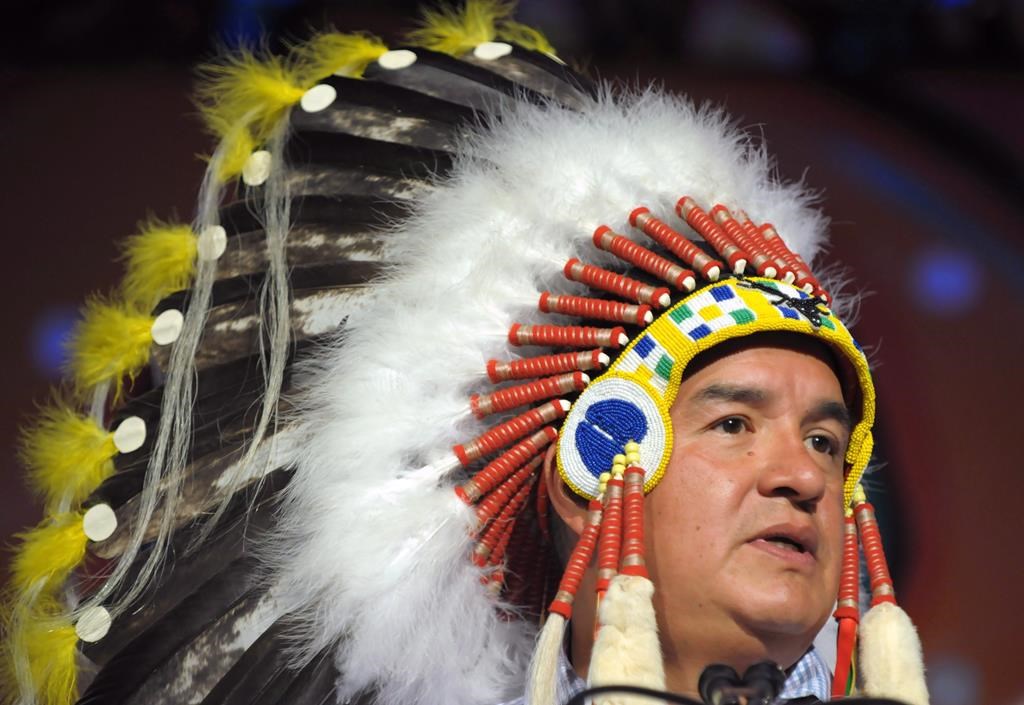Following Premier Scott Moe’s calls for greater provincial autonomy on Tuesday, Saskatchewan Opposition Leader Ryan Meili opened question period asking Moe to denounce western separatism.

Moe did not denounce these ideas on the floor of the Legislative Assembly. He said he met with Prime Minister Justin Trudeau on Tuesday to represent Saskatchewan issues, and voiced his disappointed with hearing “more of the same” from Trudeau.
Speaking with reporters Wednesday afternoon, Moe went deeper into his views on calls for western separation.
“I don’t think western separation is the answer. I don’t think Saskatchewan separating from the nation is the answer,” Moe said.
“However, I am not going to denounce the feelings and the conversations that are happening by Saskatchewan people. I am not going to denounce the views of people I represent.”

Meili said Moe is playing a “dangerous game” not closing the door on these ideas. After being filled in on Moe’s comments to reporters, Meili said Moe should be reiterating those comments.
“He doesn’t want to alienate any of his base, and as a result fails to take any positions of conscious,” Meili said.
The email you need for the day's
top news stories from Canada and around the world.
Following the Tuesday meeting, Moe said Saskatchewan would be looking at expanding provincial autonomy. The only detail he spoke of was expanding Saskatchewan’s presence in export markets.
He said further details will be coming in the near future, and “all items are on the table.”
“What we’re considering is the conversation about what opportunities we may have to enhance our provincial autonomy here in the province,” Moe said.
“We haven’t discussed specific items as of yet, but I would say that all items are on the table when it comes to discussion about ensuring that Saskatchewan is a strong province, a strong province within the nation of Canada.”
Issues of sovereignty play a big role in the goals of another Saskatchewan-based political body, the Federation of Sovereign Indigenous Nations (FSIN).
FSIN Chief Bobby Cameron said he would have wanted to be at the table with Moe and Trudeau as the regional chief.
“Scott and I, we would have brought a lot of meat and potatoes to the table when meeting with Trudeau,” Cameron said.
“Judging by Scott Moe’s comments that not much was expected, and it was more of the same from Trudeau, if we worked together we would have had more of an impact on Trudeau.”
More on Politics
Cameron said he and the premier had a good meeting about a month ago, talking about several shared issues. Cameron added there are other pressing provincial issues the prime minister should be involved in.
“The priorities are obviously our inherent and treaty rights, the health and wellness of our communities. Not just First Nations communities, but our towns and cities,” Cameron said.
“The alcohol, drugs and the crime, the violence, I mean look at the capital of Saskatchewan, Regina. It’s not a big city compared to Toronto, but they’re sure leading the statistics in terms of violence and deaths because of gangs alcohol and drugs.”
Regina routinely has among the highest crime severity indexes in Canada.
With growing talk of increasing sovereignty, Cameron said he wants to see greater economic opportunities for First Nations, such as repealing legislation granting provincial jurisdiction to natural resources. He said this would allow First Nations to be greater partners on these projects, and get more community benefit.
Currently, Cameron estimates about 20 of the 74 communities that make up the FSIN membership are under boil water advisories.
Differing meeting accounts
Late Tuesday, the Prime Minister’s Office released and account of the meeting with Moe, detailing ways Trudeau offered to work together.This includes opening the door for further comment on legislation Moe does not like, such as Bill C-69, which overhauled the environmental assessment for major projects.Moe said the prime minister already has this information from Saskatchewan.“Nine of 10 provinces are in agreement this act needs to change. Nine of 10 provinces provided input on that, most recently at the senate hearings. The prime minister has all of the information from provinces, including Saskatchewan,” Moe said.The premier added that Saskatchewan will resubmit its views on what Moe calls the “no more pipelines bill.”After hearing both side’s accounts of the meeting, Meili said he’s disappointed in both leaders.“We could have seen a more collaborative tone coming from Moe and also from the prime minister. I thought some of the words coming out of his office were condescending towards Moe,” Meili said.“I thought Mr. Moe took a very belligerent, blustery and all or nothing approach. That’s not going to get anyone anywhere.”




Comments